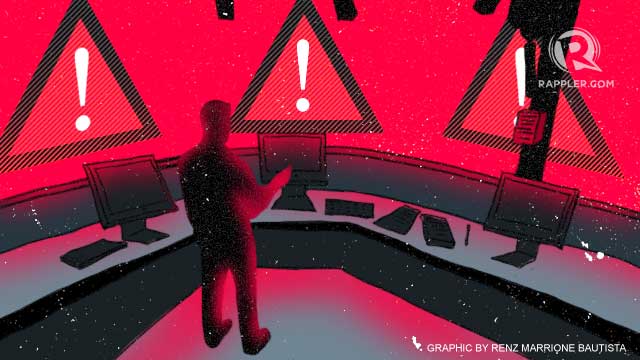SUMMARY
This is AI generated summarization, which may have errors. For context, always refer to the full article.
 While you are on vacation from work, how many screens (and am not talking about sunscreens) did you and your family bring with you?
While you are on vacation from work, how many screens (and am not talking about sunscreens) did you and your family bring with you?
Surely, screen technology, with our laptops, smart phones, and tablets, is the main way of being and staying connected and thus, a part of our culture.
If it is part of our culture, then our brains should be able to adapt and not be harmed by our love affair with screens, right? Well, no.
The brain is plastic within the limits of its own biology. You cannot simply will something and expect your brain to reform its structure and functions accordingly and swiftly.
So just because screens are the most ubiquitous means to get information and connect with the world does not mean that your brain is doing everything better than before.
An example is serious reading. If you read on a screen, there are so many things that can distract your from digesting word for word what is going on in the main text. And for anyone who loves to read stories, you know you also need to focus on what is not written or explicit in the text.
These distractions could be the hyperlinks that you could click, the video links, the catchy advertisements and even the related stories – all these even before you get the full sense of what the complete piece is about.
This apparently translates to a “deficit” when you are faced with an actual novel you are reading on paper and am guessing, some serious non-fiction books.
This means that if you have been reading on screens for too long, it will take a while before you can again read a book on paper without having to go through pages without understanding anything.
This is what neuroscientist named Maryanne Wolf, from Tufts University and the author of a favorite book of mine – “Proust and the Squid: The Story and Science of the Reading Brain” thinks.
I strongly recommend her book to anyone who loves to read. Reading it, you will have a newfound respect for your brain in terms of its own ability to read and derive meaning from it.
Revolutionary brain
In her book, she explained that the human brain is quite revolutionary in the sense that it has learned how to “read” using the same primitive brain parts that our human ancestors possessed.
This means that there is no brain part that is specifically for reading. For thousands of years we humans have developed the circuitry in our brains to read a certain way – slow and exhaustive – the kind demanded by classic literature and many modern books on science, art and history now.
With digital technology, we are now trying to trump that deeply evolved circuitry in favor of scanning for the overall point of the book with “keywords,” “visual maps” and links.
While screens seem to be an efficient way of getting information, it may not be the best way to derive meaning and frame information in terms of its relevance.

I notice this myself. When I read a printed novel on vacation, I am more prompted to “taste” and “retaste” the words or phrases I enjoy until I probably maxed out the dopamine I can get from them.
Sometimes, I even walk to someone and share the phrase or a newfound insight. When reading an e-book, I often just highlight the phrase and move on.
There must be a difference between the brains of people who grew up with paper books and those who grew up mostly getting their books, and all else, including games, on screen.
The early years, 0-5, are, scientists say, when the brain is most plastic and thus, it follows that it will be molded according to what you do with it for the most number of hours.
Evidence suggests that for kids who spend too much time on computer games, the frontal lobe, where planning and organization takes place is the one that seems to suffer in terms of volume.
The insula, associated with our capacity for empathy and compassion, seems to also suffer among the brains of kids with increased screen time.
I can imagine that some of you may think I am this decrepit middle-aged lady who abhors technology. Oh but I have them too – all kinds of screens.
But I grew up with paper books where you have to be focused in order to hunt for something because there is no digital way of searching for anything. I grew up loving the hunt.
So while I juggle the use of all my screens, I have a secret deep relationship with the “hunt” that I could never shake off.
Unlike in all of my other columns, I deliberately did not include hyperlinks to this column. I thought I’d pay tribute to the “old” brain that way – the brain that can carry a thought from beginning to end, that carefully forms questions as it reads through, that patiently waits for all the information to be expressed in this one piece, before we set out to explore “related links.”
But the irony does not escape me. Rappler is an online news network. It can only be read on screen.
So brain, brain, will you go away or make way for my new compromising brain? – Rappler.com
Maria Isabel Garcia is a science writer. She has written two books, Science Solitaire and Twenty One Grams of Spirit and Seven Ounces of Desire. Her column appears every Friday and you can reach her at sciencesolitaire@gmail.com.
Add a comment
How does this make you feel?
There are no comments yet. Add your comment to start the conversation.